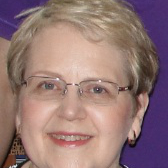The world’s financial markets are in great turmoil. How do we deal with all of this? Let me tell you my view. Yours may differ.
For those of us who are peak oil aware, we know that the world is finite, so the period of continued compound growth cannot continue. Because of this, we have known that eventually we would start seeing turmoil in financial markets. It should be clear that putting our faith in these markets is crazy, even if this is what financial planners have told us to do. If we have already divorced ourselves from this faith, we are ahead of the game.
Looking at the situation from a historical perspective, we have been privileged to live in the world at a very unusual time–a time when oil was in abundance, and we were able to have conveniences that people a few generations ago wouldn’t even have dreamed of. We know that this must come to an end, and that gradually we will get back to a world more like it has been over the millions of years that people have walked the earth.
What is happening now in the financial markets is only a small increment in the step-down process. We can either focus on the amazingly good fortune we have had to date, or focus how bad the change ahead might be. It seems like framing the issue as one of historical good fortune is a better approach.
How we count our wealth
We can count our wealth in many ways–the status of our health, our relationships with our family and friends, the physical provisions we have made for the future, or the size of our bank accounts.
I think our health is our most important asset. My own view is that eating the right foods and getting some exercise goes about 85% of the way toward staying healthy. I eat a huge amount of fruits and vegetables, a moderate amount of fish, a little wine, very little processed foods, not much dairy, and very little meat. This diet is hard to come by in modern-day America. With this diet, it is difficult to get heart disease and a host of other things that afflict Americans. Peak oil may actually help with our diet, if we can get enough food. It will certainly help with exercise.
Family and friends are very important as well. My upbringing was that no matter what anyone else says or does, it is always important to immediately forgive. Restraint was also considered a virtue. My parents were of Norwegian background. A favorite “Ole and Lena” joke is that Ole once said, “I love my wife so much, I almost told her so.”
Co-operation is another quality that was stressed in my upbringing. I can remember a lot of “arguments” about who was should do what, but they were always of the form, “Let me do more, you are doing too much.” I am fortunate that my husband follows the same philosophy. Some of this may come from belief that “Do unto others as you would them do unto you” is a good philosophy. Other religions have similar “rules”.
I am fortunate that I have an extended family and quite a few friends. We don’t have any “estranged” relatives. One of my sisters is gay. She and her partner are at every family function and family reunion. They stayed with my mother for an extra week after my father’s death early this year. Everyone considers my sister and her partner to be a valuable part of the family.
Many of my friends are from my Lutheran church. The pastors are peak oil aware. The assistant pastor has recently started a “green team,” to study issues related to resource limitations and climate change. I know the assistant pastor reads The Oil Drum at least occasionally. There are a number of people in the congregation who are interested in peak oil issues, but like other places, many who cannot mentally deal with such thoughts.
In looking at our wealth, there is admittedly a need for some real goods to meet our physical needs. I know I have been stockpiling some additional food. I bought some more last week-end. I have been keeping clothes that are no longer in fashion, figuring that they may be of use later. I am doing a small amount of gardening, but it is difficult with poor soil and much shade. Here in Atlanta, we plant fall gardens, so I got some cabbage, kale, and other vegetables to put out this past week-end.
Our bank accounts are another form of wealth. I have always been taught, “Store not up treasures on earth, but in heaven.” I am not sure about the “in heaven” part, but it is easy to see why the “store not up treasures on earth part” makes sense. If we buy huge houses and large cars, they soon “own us”, rather than us owning them. We need to devote our lives to maintaining all of the “stuff” that we have bought. Also, having all of this “stuff” isn’t very satisfying–it is our family and friends, and what we can accomplish to help other people that is satisfying.
What’s ahead
We only have a limited number of years of life ahead of us. It seems to me our focus has to be on doing the most we can with the time we have available, regardless of the turmoil in the world around us.
How is the financial turmoil affecting you? What is your view of how we should be reacting to the news? Are there financial news items other readers might be interested in? Share your thoughts.






